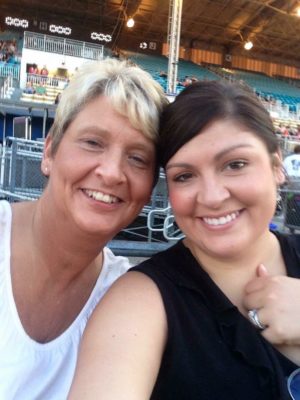A 56-year old Jacksonville resident had her life changed with a kidney transplant amid the COVID-19 pandemic. Denise Hickox received a kidney from a deceased donor on March 23rd in surgery at Memorial Hospital in Springfield. Hickox said that the whole process of finding a donor came with a great amount of risk. “The doctors and I had several discussions prior to me saying it was okay because it was during the thick of the COVID-19 pandemic. The person, they never tell you who, that died and was my donor, had a chronic lung issue. They had passed away in the hospital, and so there was much discussion whether I was willing to take that risk. The doctors said ‘We want you to understand that this was in a hospital. They passed away in the hospital. They did have chronic lung issues.’ My family and I discussed it and decided that yes, we would take the risk.”
Memorial had to cease living-donor transplant surgeries due to the pandemic in March, but have since resumed. Dr. Marc Garfield, an SIU associate professor and surgical director of Memorial’s transplant program, said in a recent press release that donations from deceased donors had to continue due to the chronic shortage of crucial organs like kidneys. A recent article in the scientific journal The Lancet said transplants of deceased-donor organs in the United States dropped 50% from late February to early April, a time when some hospitals were packed with COVID-19 patients and unable to recover organs or free up staff. Transplants from living donors have now resumed.
Hickox says that the transplant surgery has freed her from a dialysis routine of four days a week for 3 ½ hours a day over the last 3 years, giving her a chance at life again. She said that before the surgery, her kidney function had dropped below 20% and she had a poor quality of life with fatigue and restriction all the time. Hickox says her granddaughter says that her grandma got her voice back. Hickox says that she always sounded weak and barely able to talk most days because of the strain of her rare kidney disease. Doctors told Hickox that her disease was one of the rarest forms and that a kidney transplant was necessary. She says there is very little information or research about her previous condition.
Hickox says she is thankful that her daughter, Brittni Pierson who is a master’s registered nurse, was able to be by her side during the past 3 years. Pierson was able to take training to give her mother dialysis at home. Hickox says that the day of the surgery and the week that followed was some of the hardest parts of the whole process. Her daughter had to leave the hospital the day of the surgery. “We were both very upset about this. Here we were going through all the bad together and we had finally reached the point of good, and we couldn’t share that together. She had to leave. I go into surgery. They called my husband and family about every hour giving updates. The surgery took about 8 hours, and then I went into a room alone. I was by myself. I had no support system there. The only contact that I had was the nurses that came in to give me my medications. I laid there for 5 days that way.”
Hickox says she understood why the extra precautions were taken, but it didn’t take away the loneliness she felt and the need of wanting to be with her family after the surgery. She says she’s appreciative of the extra precautions that Memorial Hospital took to save her life. No-visitor policies have been adopted by Memorial and other hospitals nationwide to reduce the potential spread of the COVID-19 virus. Hickox says she has let some of the resentment of the time alone go and has a great understand and appreciation of why things had to be the way they were. Twelve kidney transplants have taken place at Memorial since early March.
Hickox hopes that her larger story can help raise awareness about the devastating effects of kidney disease and the long-term effects it has on families and patients. “I think the main thing that I want people to realize is that there are so many people out there who need kidneys. It’s important to realize that organ donation is a very big part of our world today. Kidney disease is a very large problem, probably as large as cancer. It’s a very hard disease to live with.”
Hickox says the mental anguish of kidney disease is as bad or worse than the illness itself. She hopes her story helps raise awareness about the need for organ donation and the crucial lifeline it gives to people like her. According to the Living Kidney Donor Network, there are over 93,000 people in the United States on the kidney transplant waiting list.




